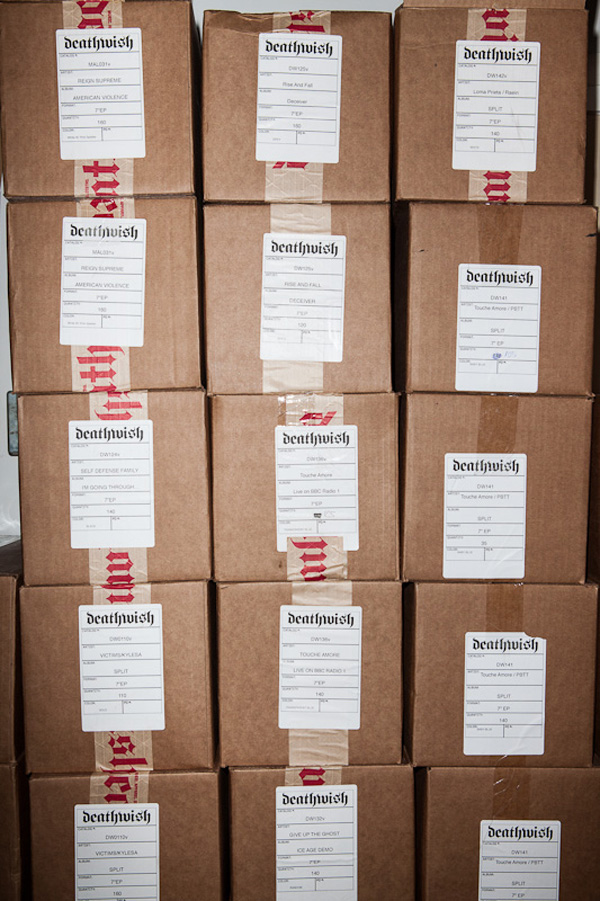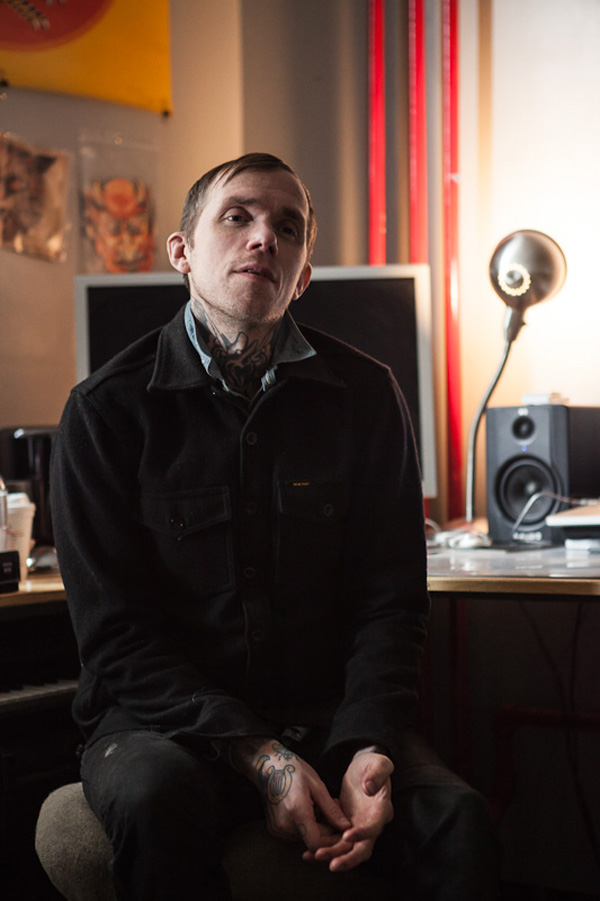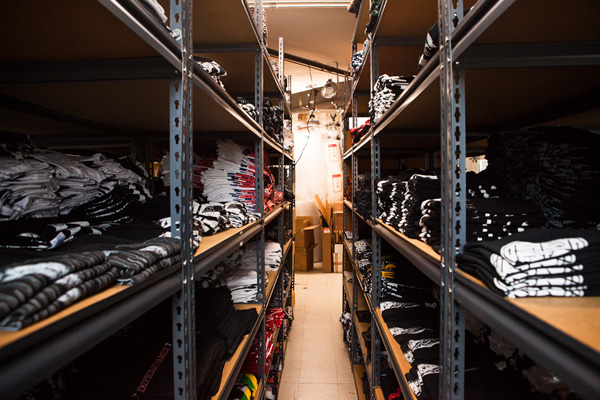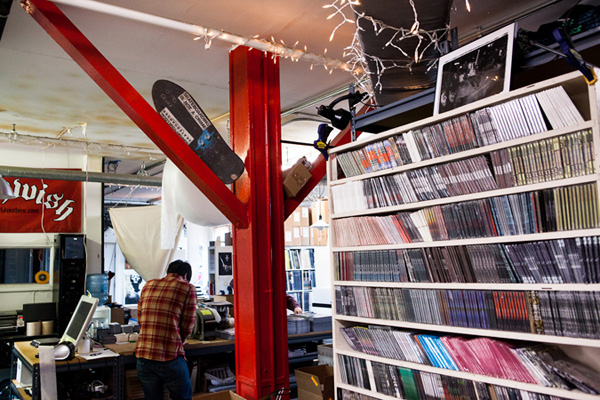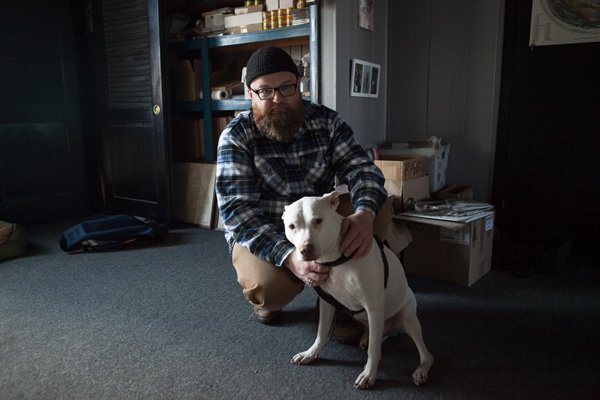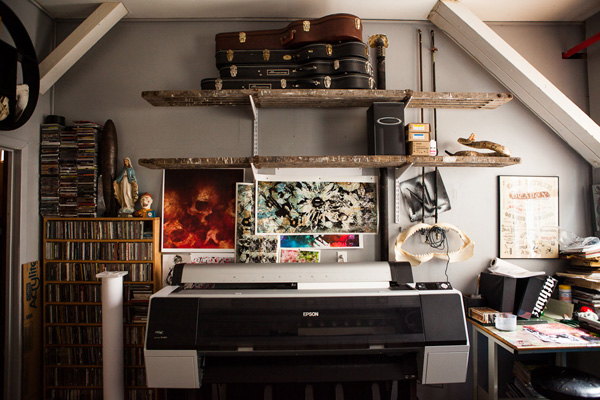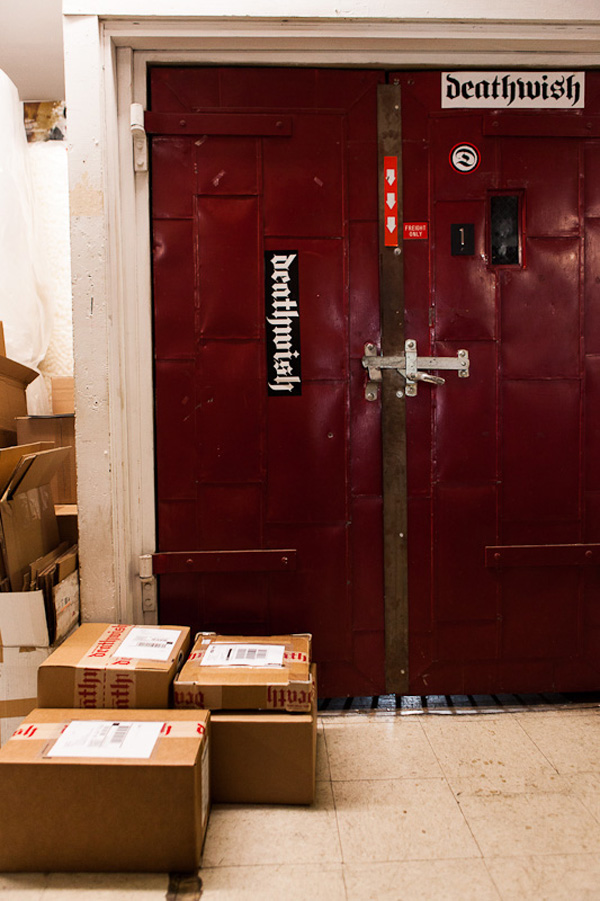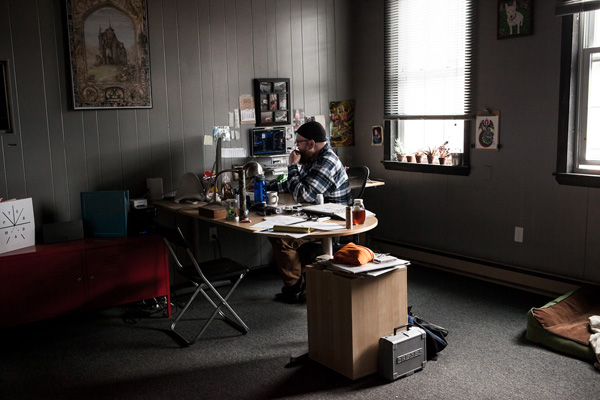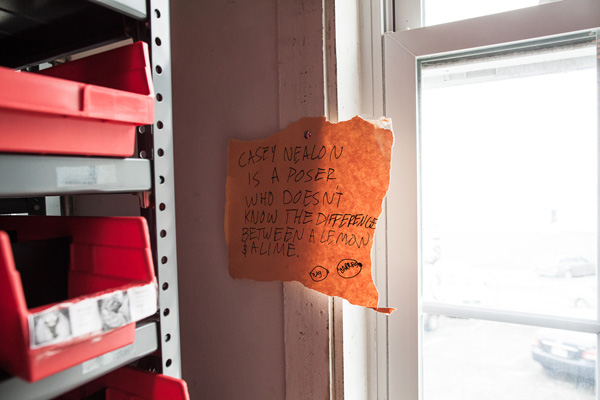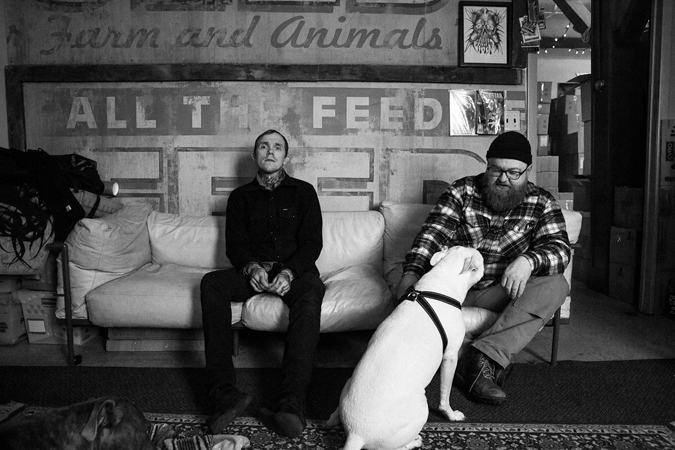In everyone’s life, there are those few moments where events align and push people toward their destiny. For Converge singer Jacob Bannon and tour manager Tre McCarthy, one of those was the sudden demise of the Howling Bull America label in 2000. Bannon already was a decade deep in fronting Converge, and McCarthy was traveling constantly to manage BoySetsFire, Bane, Reach the Sky, and Disembodied—so the idea of starting a label of their own was one that had been batted around for some time.
With Howling Bull gone, the fate of the now-infamous Converge / Hellchild split hung in the balance. It turned out to be the motivation that the two needed to stop talking about doing a label and actually put out a record. Nearly 15 years and more than 100 releases later, Deathwish Inc. has grown into one of the most respected hardcore labels on the planet.
But despite the changes that a decade-and-a-half have made in their lives, Bannon and McCarthy, both hardcore lifers, continue to operate from a place of creativity and dedication to what they and the bands on their label love.
What was the impetus for doing Deathwish?
TM: I met [Converge guitarist and owner of GodCity Studio] Kurt Ballou first. [Bane guitarist] Aaron Dalbec and I met him at a 411 show in Boston in 1991 while he was peddling Converge demos in the crowd between bands. We became friends with Kurt, and shortly thereafter, our bands played a show together in Worcester.
I’ve been friends with Jake since. Jake and I were on the other side of the fence from labels. He was dealing with them as an artist, and I was dealing with them as a tour manager. Together, we felt that we had a fresh perspective of what bands need and what a label can do for its bands.
A lot of people think that they’d love to own a record label, but few probably know what goes into it. What’s the biggest headache of owning a label like Deathwish?
JB: I don’t see any of it as a headache. It can be stress-inducing for sure, but it is a labor of love, just as is making music and art. I wouldn’t have it any other way. The aspects of the label that Tre manages (financial things, etc.), I find to be more difficult. The “staff” is here regular business hours for the most part, while Tre works seemingly 24 hours a day from his phone or laptop. We stick to what we are good at.
TM: The headaches that come along with the territory are from the boring and mundane tasks that no one really thinks about when they think about running an awesome, super-cool record label like Deathwish. I have to work on the schedule of the people that I work for, my bands. So if a band is on tour in Europe, and they are texting me at 4 AM, then I am working at 4 AM. I might have slippers and Deathwish sweatpants on, while half asleep on the couch, but this is what it is.
Owning an independent record label is awesome, but it is a lot of work. I love it—period. I have the best job, but it’s not a cakewalk.
Deathwish has a distinct visual style as you, Jake, do much of the album art. Is that something you’ve purposefully set out to do?
JB: I feel that we have a level of quality with the packaging and presentation of our releases, but they all carry their own unique character. For example, a Wovenhand release does not look like a 100 Demons record, but I designed both of them. They are just the best of what they can possibly be. I will create artwork for a band if they ask me to, but I will never require it or anything. As someone who cares about our releases, I just want to them all to be the best they can possibly be.
